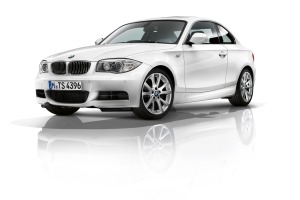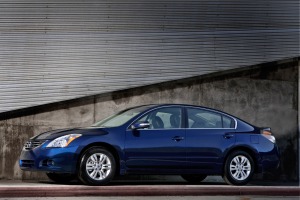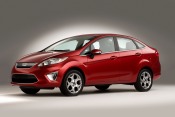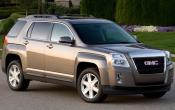- Save |
- Email |
- RSS |
- Newsletter
What You Should Know Before Buying a Diesel
Diesel Buying Guide | What You Should Know Before Buying a Diesel | View Other Buying Guides
Size/Market Segment
With the advent of clean-diesel technology, diesel-powered vehicles are now available in all 50 states from numerous manufacturers. Diesel passenger cars and SUVs are offered by Audi, BMW, Mercedes-Benz and Volkswagen, while diesel pickup trucks are available from Chevrolet/GMC, Ford and Dodge.
Price
Because of the extra technology that goes into making diesels perform well on the road and comply with emissions standards, they are generally more expensive than rival gasoline engines.
Engine/Fuel Economy
In the past, diesel engines were written off as noisy and smelly, but technological advances over the last decade have eliminated these drawbacks (though you still shouldn't expect whisper-quiet operation in a big diesel pickup). Fuel economy is stellar relative to gasoline-powered engines, yielding serious driving range between fill-ups. Grunt is also impressive: Always paired with a turbocharger, modern diesels provide unmatched torque at low rpm, which makes them an excellent choice for towing and hauling. The extra torque offsets diesel engines' typically lower horsepower numbers, and makes them feel especially strong around town.
Safety
Like gasoline-powered cars and SUVs, shoppers should check the availability of features like antilock brakes, front-seat side airbags, full-length side curtain airbags and stability control. Features like rearview cameras and parking sensors are becoming increasingly available on non-luxury cars, while premium brands are utilizing high-tech electronics to warn inattentive drivers of blind-spot intrusion and impending collisions. Shoppers should be aware of crash-test scores as well, but it should be noted that the National Highway Traffic Safety Administration adopted more strenuous testing procedures for 2011, making the ratings of recently tested models incomparable to those tested in the past.
Luxury Features/Convenience
Today's diesel-powered models can be outfitted every bit as opulently as their gasoline-drinking counterparts. As all 2010 diesel passenger cars and SUVs are of German origin, they tend to have a premium feel inside, with lengthy lists of optional luxuries. The American diesel pickups generally receive the same standard and optional features as gas versions.
Passenger Capacity/Interior Space
Interior space varies depending on the model you select, just as it does with gasoline-powered sedans. Families needing an extra row of seats will find SUV models attractive, especially since bigger, heavier vehicles are best suited to a diesel engine. Heavy-duty pickups can seat anywhere from three to six people, depending on whether you choose a regular-, extended- or crew-cab model.
Luggage Capacity
The BMW 335d has the least trunk capacity at 12 cubic feet, but that should still be enough for the average sedan shopper. The VW Jetta SportWagen boasts an impressive 66.9 cubic feet with the rear seatbacks folded. The midsize diesel SUVs offer around 70 cubic feet of maximum cargo capacity, while the larger Mercedes-Benz GL-Class tops out at 83 cubic feet. When choosing a cab and bed configuration, heavy-duty-pickup buyers should assess how much cargo space (both open and enclosed) they require when choosing a cab and bed configuration. Those planning to hook up a fifth-wheel trailer will almost certainly need the long-bed option.
Manual vs. Automatic Transmission
This used to be a simple section, but not anymore. While traditional manuals with clutch pedals are still recommended for sport sedans and underpowered compacts, there are now several kinds of automatics. One is the traditional and most common "automatic transmission," which features a torque converter and can be shifted manually via the console shifter or wheel-mounted paddles. Automated manual transmissions used to be the stuff of exotic sports cars, but now they've found their way into economy cars for their ability to better maximize the potential of lower-powered engines. While these types of transmissions make manual shifting more responsive, they can operate just like a normal automatic but shift quality is generally less smooth.
Operating Costs
The main attraction of diesels, at least in light-duty vehicles, is that they reduce fuel costs through increased efficiency. In the United States, however, the cost of diesel fuel has fluctuated widely in recent years, exceeding the cost of even premium gasoline at times. For consumers who choose to fill up with biodiesel, fuel costs will be even higher. In the long run, though, most diesel owners will enjoy a savings over comparable gasoline models and even some gas-electric hybrids. Another potential consideration for very high-mileage drivers is that diesel engines historically have a longer service life than gasoline motors due to their simpler design and more robust construction.
More Information About Diesels
Advertisement
Advertisement




